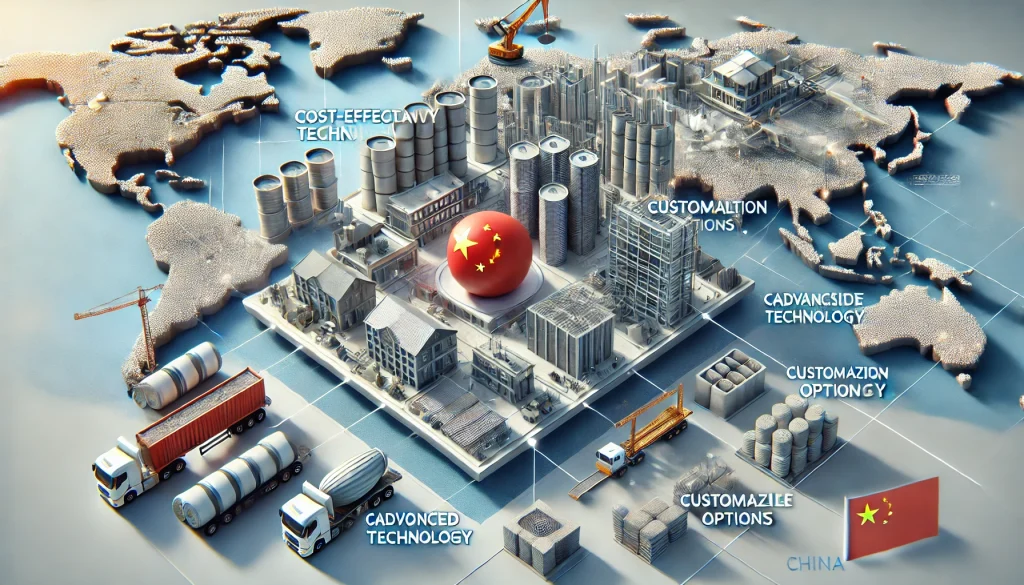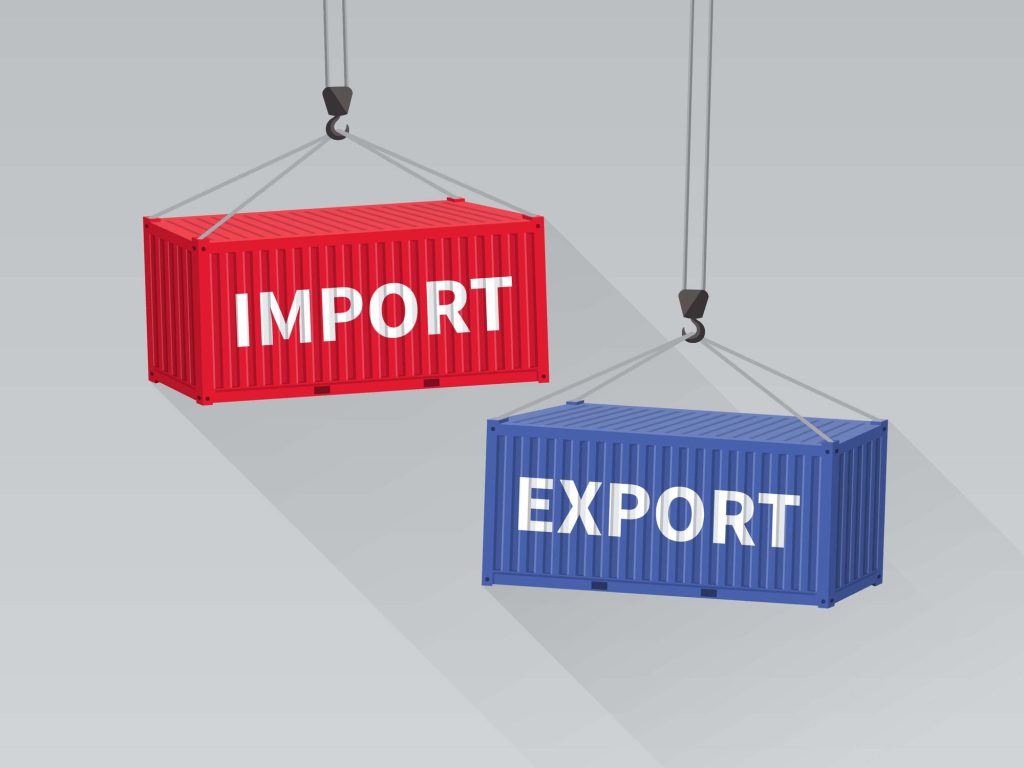Why Source Building Materials in China?

At Loveridge Properties and Consult, we specialize in sourcing and shipping building materials worldwide, providing our clients with high-quality products at competitive prices. One of our key sourcing destinations is China, and here’s why sourcing building materials from China can be highly advantageous for your construction projects. 1. Cost-Effectiveness China is known for its cost-efficient production processes. Manufacturers in China benefit from economies of scale, advanced technology, and a large labor force, enabling them to produce high-quality materials at lower costs compared to many other countries. This cost advantage is often passed down to buyers, allowing you to get more value for your money. 2. Diverse Range of Products China’s vast manufacturing sector produces a wide variety of building materials, from basic supplies like cement and steel to more specialized items like high-performance glass and advanced insulation materials. Whether you’re looking for bulk materials or specific products tailored to unique project requirements, you can find a diverse range of options to meet your needs. 3. Advanced Technology and Innovation Chinese manufacturers are at the forefront of technological innovation in the construction industry. Many companies invest heavily in research and development, ensuring that their products incorporate the latest advancements in building technology. This includes sustainable materials, energy-efficient products, and cutting-edge construction techniques that can enhance the quality and performance of your projects. 4. Quality Assurance Contrary to some misconceptions, many Chinese manufacturers adhere to stringent quality control standards. By partnering with reputable suppliers and conducting thorough due diligence, you can ensure that the materials you source from China meet international quality standards. At Loveridge Properties and Consult, we assist in vetting suppliers and verifying product quality to give you peace of mind. 5. Scalability and Large-Scale Supply China’s manufacturing capacity is unmatched, making it an ideal source for large-scale projects that require substantial quantities of building materials. Whether you’re constructing residential complexes, commercial buildings, or infrastructure projects, Chinese suppliers can scale up production to meet your demands, ensuring timely delivery and consistent supply. 6. Customization and Flexibility Chinese manufacturers are often willing to customize products to meet specific project requirements. Whether you need materials in non-standard sizes, bespoke designs, or specific performance characteristics, many suppliers are flexible and can tailor their offerings to suit your needs. This customization capability is crucial for projects that require unique solutions. 7. Efficient Logistics and Shipping China’s well-developed logistics and shipping infrastructure make it easier to transport goods worldwide. With major ports and efficient supply chain networks, you can expect reliable and timely delivery of materials. At Loveridge Properties and Consult, we handle the logistics to ensure that your materials arrive safely and on time, no matter where your project is located. Conclusion Sourcing building materials from China offers numerous advantages, from cost savings and diverse product options to advanced technology and reliable supply chains. At Loveridge Properties and Consult, we leverage our expertise and network to help you navigate the sourcing process, ensuring you receive high-quality materials that meet your project’s requirements. If you’re considering sourcing building materials from China or need assistance with your procurement needs, contact us today. Let us help you bring your construction projects to life with the best materials available on the global market.
Cost-Benefit Analysis: Importing vs. Purchasing Locally for Real Estate Development

Introduction: Cost-benefit analysis is a crucial process in the real estate industry, as it helps developers determine the most profitable and sustainable options for their projects. This blog will explore the benefits and drawbacks of importing materials and purchasing locally for real estate development, providing a comprehensive comparison between the two approaches. Importing vs. Purchasing Locally: A Comparison Conclusion: The decision between importing and purchasing locally for real estate development depends on various factors, including cost, environmental impact, supply chain risk, and local economic benefits. Developers should carefully consider these factors when making their decisions to ensure long-term sustainability and success for their projects. References:
Land tenure system in China

The land tenure system in China is unique and differs from the Western concept of private land ownership. The Constitution of the People’s Republic of China stipulates that all land in China belongs to the state or collective economic organizations. Individuals and entities can obtain land use rights, which provide them with certain usage rights and responsibilities for a specific period, typically ranging from 40 to 70 years. There are two primary types of land use rights in China: State-Owned Land Use Rights: State-owned land is owned by the government and managed by various land administration departments at different levels. The government allocates state-owned land use rights through various means, including auctions, bidding, leasing, and grants. These rights are typically obtained by businesses, industries, and other non-agricultural entities for commercial, industrial, or public purposes. Collective-Owned Land Use Rights: Collective-owned land is owned collectively by rural communities or village collectives. It is generally used for agricultural purposes. Collective-owned land use rights are granted to households or farmers within the collective, allowing them to use the land for agricultural production. However, these rights are not transferable or freely tradable. Farmers can sublease or transfer the right to use the land within their collective, but it requires approval from the collective and local authorities. It’s important to note that while individuals and entities can acquire land use rights, they do not have full ownership rights over the land. The state retains ultimate ownership, and land use rights can be revoked or reclaimed by the government under certain circumstances, such as for public interest, urban development, or infrastructure projects. The land tenure system in China has undergone significant reforms over the years to accommodate economic development and urbanization. These reforms have included the introduction of long-term land use rights, the establishment of land markets, and efforts to clarify land use rights and strengthen property rights protection. However, it remains a complex system that combines elements of state ownership and collective ownership, with the state maintaining overall control over land resources.


